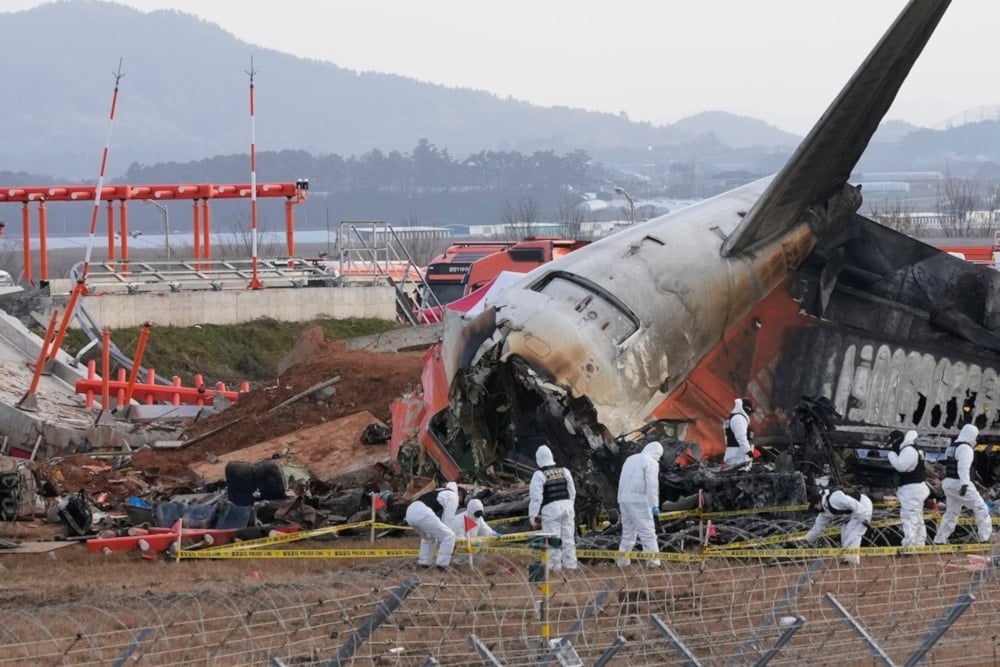Jeju Air black boxes stopped recording shortly before crash: S.Korea
South Korean and US investigators are continuing their joint investigation into the crash, which has sparked nationwide mourning and led to memorials across the country.
-

Rescue team members work at the site of a plane crash at Muan International Airport in Muan, South Korea, December 31, 2024. (AP)
The black boxes containing the flight data recorder (FDR) and cockpit voice recorder (CVR) for the crashed Jeju Air flight, which claimed the lives of 179 people, stopped recording four minutes before the crash, according to South Korea's Transport Ministry on Saturday.
The Boeing 737-800, traveling from Thailand to Muan, South Korea, on December 29 with 181 passengers and crew, belly-landed at Muan airport, collided with a concrete barrier, and erupted into flames. This marked the deadliest aviation disaster in South Korea's history.
"The analysis revealed that both the CVR and FDR data were not recorded during the four minutes leading up to the aircraft's collision with the localizer," the ministry stated. The localizer, a barrier at the runway's end designed to assist landings, was cited as worsening the crash's severity.
Due to significant damage, South Korean authorities were unable to extract data from the flight data recorder and sent it to the US National Transportation Safety Board laboratory for further analysis.
However, it seems that the devices experienced data loss, leaving critical questions unanswered. "Plans are in place to investigate the cause of the data loss during the ongoing accident investigation," the ministry confirmed.
Driving the news
South Korean and US investigators are continuing their joint investigation into the crash, which has sparked nationwide mourning and led to memorials across the country.
The ministry emphasized the importance of the black boxes to the investigation while affirming their determination to uncover the cause of the crash.
"The investigation will be conducted through the examination and analysis of various data. The Committee is committed to doing its best to accurately determine the cause of the accident," it said.
Potential causes under review include a bird strike, malfunctioning landing gear, and the runway barrier. The pilot reported a bird strike before aborting the first landing attempt, then crashed during a second attempt when the landing gear failed to deploy.
Lead investigator Lee Seung-yeol noted this week that "feathers were found" in one of the recovered engines but cautioned that a bird strike alone does not necessarily result in engine failure.
Authorities have conducted raids at Muan Airport, a regional aviation office, and Jeju Air's headquarters in Seoul. Jeju Air’s CEO has also been barred from leaving the country.
In response to the crash, rival political parties have formed a joint task force to investigate. Transport Minister Park Sang-woo offered his resignation, stating, "As the minister responsible for aviation safety, I feel a heavy sense of responsibility regarding this tragedy."

 3 Min Read
3 Min Read








